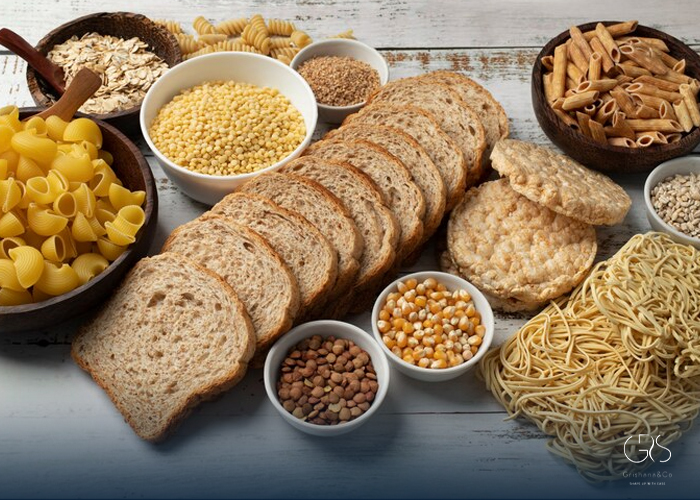Carbohydrates are a hot topic in the world of nutrition and dietary debates. As we strive to understand their impact on energy levels, athletic performance, weight management, and overall well-being, it becomes crucial to determine the best times to consume carbs. This comprehensive guide delves into the various perspectives surrounding carb consumption and offers practical strategies for incorporating carbs into your meals effectively, while shedding light on the optimal times to do so.
Morning Fuel:
Starting your day with a carbohydrate-rich breakfast can kickstart your metabolism and provide sustained energy throughout the morning. Research published in the American Journal of Clinical Nutrition suggests that a breakfast rich in carbohydrates leads to improved cognitive function and memory. This makes incorporating complex carbohydrates such as whole grain bread, oats, or fruit into your breakfast an ideal choice for a sustained energy release.

Lunchtime Energy Boost:
Including carbs in your midday meal can provide sustained energy for the afternoon and support focus and productivity. Opt for complex carbs such as brown rice, quinoa, or whole grain pasta as part of your lunch to maintain energy levels and prevent the post-lunch energy slump. Pairing carbs with lean proteins and healthy fats can also enhance satiety and provide a balanced meal.
Carbs for Recovery and Performance:
For athletes and active individuals, the timing of carbohydrate consumption around workouts is crucial for optimizing performance and aiding in recovery. Research published in the Journal of Applied Physiology highlights the benefits of consuming carbohydrates post-exercise to promote muscle glycogen storage and enhance recovery. Incorporating easily digestible carbs like bananas, sweet potatoes, or rice within 30 minutes to 2 hours post-workout can aid in glycogen replenishment and muscle repair.

Dinner:
Incorporating carbs into your evening meal can support sustained energy release, especially after an active day. Choosing complex carbohydrates such as legumes, root vegetables, or whole grains can provide this steady energy release. For those aiming to manage their weight, moderating carbohydrate intake at dinner and focusing on incorporating ample non-starchy vegetables, lean proteins, and healthy fats can be beneficial.
Tailoring Carb Intake to Weight Management:
Carbohydrates play a crucial role in weight management, and tailoring their intake can be pivotal in achieving weight-related goals. Balancing the type and timing of carbohydrates can support weight management endeavors. For example, individuals aiming to manage their weight may benefit from moderating their overall carbohydrate intake, especially from refined and processed sources. Modifying the timing of carb consumption, such as favoring carbs earlier in the day and reducing intake in the evening, may also support weight management efforts.
The Ketogenic Approach:
Low-carb diets and ketogenic diets have become popular due to their potential advantages in weight management and metabolic well-being. Studies featured in the Journal of Obesity propose that adherents of low-carb diets and ketogenic diets could encounter improved weight loss and metabolic enhancements. Customizing carbohydrate consumption for certain times, such as during exercise sessions, is crucial for those adhering to these dietary approaches.
Individualized Approach:
Ultimately, the best time to eat carbs hinges on individual goals, preferences, and lifestyle factors. Athletes and active individuals may benefit from incorporating carbs before and after workouts to optimize performance and recovery. For those focused on weight management or blood sugar control, adjusting the timing and type of carbs consumed can be pivotal in achieving desired outcomes. Consulting with a healthcare professional or registered dietitian can help tailor your carbohydrate intake to align with your specific needs and goals.
Meal Plan Suggestions:
Breakfast
To kickstart your morning with a dose of carbs, try out these suggestions:
- Start your day with whole grains like oatmeal , shredded wheat, or whole-wheat toast instead of sugary breakfast options
- Boost your breakfast with fresh or frozen berries, bananas, mangoes, or citrus fruits in smoothies or on yogurt for added nutrients
- Spice up your morning eggs or omelet with leafy greens like spinach or kale , along with tomatoes, mushrooms, or peppers
Lunch
Keep your afternoon energy levels up by incorporating carbs into your lunch:
- Opt for whole-wheat bread in sandwiches or wraps for a healthier carb choice
- Mix in a variety of colorful veggies in your wraps, sandwiches, grain bowls, or salads for a nutritious and satisfying meal
Dinner
End your day with a nutritious carb-loaded dinner using these ideas:
- Choose from a variety of whole grains such as barley, buckwheat, brown rice, wild rice, or quinoa as a side dish
- Enjoy the richness of starchy veggies like sweet potatoes, acorn squash, butternut squash, or corn
- Add legumes like lentils or beans to soups, stews, or stir-fries for a hearty and balanced meal
Snacks
When hunger strikes between meals, try these delicious carb-filled snacks:
- Pair your favorite fruits with nuts or a dollop of nut butter for a tasty and satisfying treat
- Dive into dips like hummus with an assortment of raw veggies such as baby carrots, celery, sugar snap peas, and bell peppers
Conclusion
The guide highlights the importance of tailoring carbohydrate intake based on individual goals and preferences. Consuming complex carbohydrates at different times of the day can support energy levels, performance, and weight management. Practical meal suggestions provided offer nutritious ways to incorporate carbs into daily meals. Low-carb and ketogenic diets are mentioned for potential benefits in weight loss, with an emphasis on individualized approaches. Seeking guidance from healthcare professionals or registered dietitians is recommended for personalized carbohydrate intake alignment with specific needs and goals.
Sources
- Harvard T.H. Chan School of Public Health, Carbohydrates and Blood Sugar
- Mayo Clinic, Carbohydrates: How carbs fit into a healthy diet










